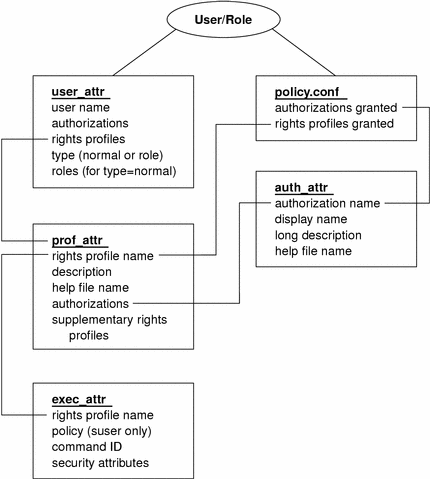New zh_CN.GB18030 Locale Enhanced From zh_CN.GBK
This new zh_CN.GB18030 locale is provided to support the new GB18030 standard encoding that is required by a new law that the Chinese Government has enacted.
New zh_HK.BIG5HK Locale to Support HKSCS for Hong Kong, China
The new zh_HK.BIG5HK locale is provided to support the Hong Kong Supplementary Character Set (HKSCS). The HKSCS, as a supplementary character set of the Big-5 and ISO 10646 coding schemes, contains Chinese characters that are needed in Chinese computing in Hong Kong. However, these characters are not contained in either the Big-5 or ISO 10646 standard character sets.
Japanese Module Support
Additional Japanese iconv Modules
Additional Japanese language support includes iconv code conversions between Solaris Japanese locale codesets, such as eucJP, PCK, and UTF-8, and Japanese mainframe codesets, such as Fujitsu JEF, Hitachi KEIS, and NEC JIPS.
New European Locale Support
New Unicode (UTF-8) Locales for Europe and the Middle East
For the Solaris 8 10/00 release, Russian, Polish, and two new locales for Catalan were added to the European and Middle Eastern locales. For the Solaris 8 4/01 release, two additional languages, Turkish UTF-8 Codeset and Russian UTF-8 Codeset, were added.
In the Solaris 9 release, European and Middle Eastern language support also includes the addition of UTF-8 locales for Turkey, Egypt, Brazil, Finland, and Belgium-Walloon.
The locale names are as follows:
ca_ES.ISO8859-1 locale is a Unicode locale for Spain (Catalan).
ca_ES.ISO8859-15 locale is an additional Unicode locale for Spain (Catalan).
pl_PL.UTF-8 locale is the Unicode locale for Poland.
ru_RU.UTF-8 locale is the Unicode locale for Russia.
tr_TR.UTF-8 locale is the Unicode locale for Turkey.
ar_EG.UTF-8 locale is the Unicode locale for Egypt.
pt_BR.UTF-8 locale is the Unicode locale for Brazil.
fi_FI.UTF-8 locale is the Unicode locale for Finland.
fr_BE.UTF-8 locale is the Unicode locale for Belgium-Walloon.
Euro Default Currency Support
The following locales have changed from their national currency unit (NCU) to the euro currency glyph:
ca_ES.ISO8859-15 (Spain) | de_AT.ISO8859-15 (Austria) |
de_DE.ISO8859-15 (Germany) | de_DE.UTF-8 (Germany) |
en_IE.ISO8859-15 (Ireland) | es_ES.ISO8859-15 (Spain) |
es_ES.UTF-8 (Spain) | fr_BE.ISO8859-15 (Belgium) |
fr_BE.UTF-8 (Belgium) | fi_FI.ISO8859-15 (Finland) |
fi_FI.UTF-8 (Finland) | fr_FR.ISO8859-15 (France) |
fr_FR.UTF-8 (France) | it_IT.ISO8859-15 (Italy) |
it_IT.UTF-8 (Italy) | nl_BE.ISO8859-15 (Belgium) |
nl_NL.ISO8859-15 (Netherlands) | pt_PT.ISO8859-15 (Portugal) |
Enhanced Dtpad File Open/Save Codeset Conversion
Enhancements include the addition of an "encoding" option to the File Open/Save dialog box that supports file encoding changes with iconv(3C). This option enables users to open or save files in various encodings, such as UTF-8 and UTF-16.
Role-Based Access Control
Role-based access control (RBAC) was updated in the Solaris 8 1/01 software release. RBAC databases can now be managed through the User tool in the Solaris Management Console graphical interface. A terminology change has made the term execution profiles obsolete. The term has been replaced with rights profiles, also referred to as rights (in the graphical interface) and profiles (on the command line and in files).
In addition to authorizations and commands with security attributes, a rights profile can now include other rights profiles. If the same command appears in more than one subordinate rights profile, the first occurrence in the file assumes precedence.
The policy.conf(4) file now recognizes the keyword PROFS_GRANTED, which lets you assign rights profiles by default.
The following figure illustrates how the extended user attributes are supplied to the user.
Figure 5-1 Extended Attribute Databases

The user_attr database contains the attributes that are shown, including a comma-separated list of profile names. The contents of the profiles are split between the prof_attr file and the exec_attr file. The prof_attr file contains rights profile identification information, authorizations that are assigned to the rights profile, and rights profiles that are nested. The exec_attr file identifies the policy and contains commands with their associated security attributes. The auth_attr file supplies authorization information to the Solaris Management Console tools.
Note - Although you can assign authorizations directly to users through user_attr, this practice is discouraged.
The policy.conf file supplies default attributes to be applied to all users. For example, if the Printer Management rights profile is assigned to a user or role, the user_attr entry for that user or role contains the keyword/value pair: profiles=Printer Management. The prof_attr file defines this profile, which also specifies the help file and authorizations, with the following line:
Printer Management:::Manage printers, daemons, spooling:help=RtPrntAdmin.html;auths=solaris.admin.printer, / solaris.admin.printer.modify,solaris.admion.printer.delete |
In the exec_attr file, the following line assigns an effective user ID = lp to the command /usr/sbin/accept within the Printer Management profile:
Printer Management:suser:cmd:::/usr/sbin/accept:euid=lp |
The following table lists commands that use authorizations.
Table 5-1 RBAC Commands
Command | Associated Authorizations |
|---|---|
at(1) | solaris.jobs.user |
atq(1) | solaris.jobs.admin |
crdw(1) | solaris.device.cdrw |
crontab(1) | solaris.jobs.user, solaris.jobs.admin |
allocate(1M) | solaris.device.allocate, solaris.device.revoke |
deallocate(1M) | solaris.device.allocate, solaris.device.revoke |
list_devices(1M) | solaris.device.revoke |
smcron(1M) | solaris.jobs.admin, solaris.jobs.user |
smdiskless | solaris.admin.dcmgr.clients, solaris.admin.dcmgr.read |
smexec(1M) | solaris.profmgr.read, solaris.profmgr.write |
smgroup(1M) | solaris.admin.usermgr.read, solaris.admin.usermgr.write |
smmultiuser(1M), smuser(1M) | solaris.admin.usermgr.pswd, solaris.admin.usermgr.read, solaris.admin.usermgr.write, solaris.profmgr.assign, solaris.profmgr.delegate, solaris.role.assign, solaris.role.delegate |
smmaillist(1M) | solaris.admin.usermgr.read, solaris.admin.usermgr.write |
smosservice | solaris.admin.dcmgr.admin, solaris.admin.dcmgr.read |
smprofile(1M) | solaris.profmgr.read, solaris.profmgr.write |
smrole(1M) | solaris.admin.usermgr.pswd, solaris.admin.usermgr.read, solaris.admin.usermgr.write, solaris.profmgr.assign, solaris.profmgr.delegate, solaris.role.assign, solaris.role.delegate |
For more information on the Solaris Management Console, see "System Administration Tools".
Live Upgrade Command-Line Features
In the Solaris 9 release, the following Solaris Live Upgrade new features apply to the command-line interface only.
Progress Reporting
When using Solaris Live Upgrade to upgrade or install a Web Start Flash archive, the percentage of the upgrade or install completed is reported.




